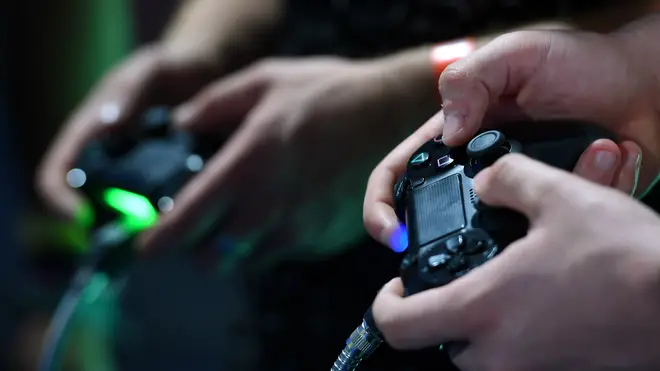
Iain Dale 7pm - 10pm
19 February 2021, 00:04

A study suggests boy gamers are less likely than girls to have developed depressive symptoms three years on.
Video games may not be as harmful as widely perceived, after a study found young boys who regularly game were less likely to have developed depressive symptoms three years later.
Researchers say that gaming may actually have some benefits, particularly during the pandemic with people forced to stay at home in lockdown.
Girls who spend more time on social media appear to develop more depressive symptoms, according to a team at University College London, suggesting different types of screen time can have positive and negative effects on young people’s mental health.
Scientists used data from 11,341 11-year-olds about their use of social media, video games and the internet.
Three years later, when they had reached 14, they also answered questions about depressive symptoms such as low mood, loss of pleasure and poor concentration.
Results suggest that boys who engaged in video gaming most days had 24% fewer depressive symptoms three years later, compared to those who played video games less than once a month.
However, researchers note that this effect was only significant among boys with low physical activity levels, and was not found among girls, which may indicate that less active boys could find more enjoyment and social interaction from video games.
Girls at 11 who used social media had 13% more depressive symptoms three years later than those who used social media less than once a month.
Researchers, which included Sweden’s Karolinska Institutet and Australia’s Baker Heart and Diabetes Institute, were not able to identify an association with more moderate social networking.
“Screens allow us to engage in a wide range of activities,” lead author PhD student Aaron Kandola from UCL Psychiatry, said.
“Guidelines and recommendations about screen time should be based on our understanding of how these different activities might influence mental health and whether that influence is meaningful.
“While we cannot confirm whether playing video games actually improves mental health, it didn’t appear harmful in our study and may have some benefits.
“Particularly during the pandemic, video games have been an important social platform for young people.
“We need to reduce how much time children, and adults, spend sitting down, for their physical and mental health, but that doesn’t mean that screen use is inherently harmful.”

Socioeconomic status, physical activity levels, reports of bullying, and prior emotional symptoms were also factored into the findings.
But researchers say there could be other reasons for the link which they have no data for, such as differences in social contact or parenting styles.
Without knowing the exact number of hours young people spent in front of screens per day, scientists are also unable to determine whether multiple hours could impact on depression risks.
“The relationship between screen time and mental health is complex and we still need more research to help understand it,” said senior author Dr Mats Hallgren, of the Karolinska Institutet.
“Any initiatives to reduce young people’s screen time should be targeted and nuanced.
“Our research points to possible benefits of screen time. However, we should still encourage young people to be physically active and to break up extended periods of sitting with light physical activity.”